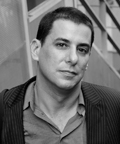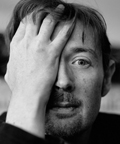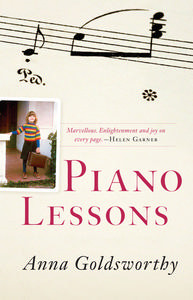Blog Archives
Stories from every angle
So, another Melbourne Writers Festival winds to a close. It’s been that curious mixture of exhausting and energising, with heroes met and made.
Every festival organiser hopes for that magical combination of guests, which can elevate a decent hour’s chat into a wonderful interweaving of minds and ideas. My favourite panels saw this happen, particularly How Russia Changed My Life, featuring the charming Elif Batuman, intrepid memoirist Maria Tumarkin and the irrepressible historian Sheila Fitzpatrick; and From Woolf to Wolf, in which Sophie Cunningham, Monica Dux and Emily Maguire discussed Virginia Woolf, Naomi Wolf and Germaine Greer.
The festival hosted some international stars, including Joss Whedon and Norman Doidge, but often it’s the writers whose work  I’m less familiar with whose stories really affect and delight me. On Sunday, at Magazine, Jake Adelstein, whose book Tokyo Vice tells of how he faced intimidation from the yakuza, read from a deleted chapter of his book – a comic tale of trailing an escaped monkey around Tokyo’s Nishi-Azabu area and being outdone in journalistic prowess by a nine-year-old boy. But only the day before, Adelstein movingly told the packed audience at Feddish about the real and dangerous cost of opposing the yakuza.
I’m less familiar with whose stories really affect and delight me. On Sunday, at Magazine, Jake Adelstein, whose book Tokyo Vice tells of how he faced intimidation from the yakuza, read from a deleted chapter of his book – a comic tale of trailing an escaped monkey around Tokyo’s Nishi-Azabu area and being outdone in journalistic prowess by a nine-year-old boy. But only the day before, Adelstein movingly told the packed audience at Feddish about the real and dangerous cost of opposing the yakuza.
 I loved the new venue, Feddish, where the Morning Fix sessions opened each festival day with a free smorgasbord of authors. But traditional venues continued to shine, including the Toff, which saw DBC Pierre settle back in a giant storytelling chair and artists including Clare Bowditch and Hannie Rayson re-enact Fleetwood Mac’s Rumours.
I loved the new venue, Feddish, where the Morning Fix sessions opened each festival day with a free smorgasbord of authors. But traditional venues continued to shine, including the Toff, which saw DBC Pierre settle back in a giant storytelling chair and artists including Clare Bowditch and Hannie Rayson re-enact Fleetwood Mac’s Rumours.
The parties, of course, were very good. The official opening party set the tone for a fun ten days, with the speeches including a tale of festival love and lust; and the celebration of Overland‘s 200th issue was attended by well-wishers and friends galore. A 25th birthday can never go past without at least a couple of good bashes, and at MWF’s 25th, Readings Books’ Mark Rubbo dropped by, as did Les Murray.
As a participant in the festival this year, too, I experienced many surprising and wonderful moments. During the Schools Program, I spoke with fantastic authors Gabrielle Wang, Kate Forsyth and Alice Pung; and inspiring youth leaders Chris Varney and Adam Smith. It’s so amazing to see how enthusiastic young festival-goers are about reading, books and ideas, and I have no doubt that we’ll see some of them back as guests in the future. During Kill Your Darlings‘ residency at Magazine, it was pretty wild to hear Robyn Archer sing every musical reference in her book Detritus – her live fifteen-minute snippet reel needed to be seen to be believed.
Congratulations to the fantastic festival staff and volunteers for a magnificent 2010 festival. I wish you all a good week’s sleep.
Poetry, music, fire!
 Who’d of thought a quiet little writers’ festival panel about poetry and music (Reading Music) would be so full of discord – clanking symbols, a low note sounding beneath some of the words, loud feedback from the audience… It was quite exciting, and Classic FM’s Emma Ayres did a solid job as conductor. On the panel were poets Les Murray, August Kleinzahler, and πO; and author/pianist Anna Goldsworthy.
Who’d of thought a quiet little writers’ festival panel about poetry and music (Reading Music) would be so full of discord – clanking symbols, a low note sounding beneath some of the words, loud feedback from the audience… It was quite exciting, and Classic FM’s Emma Ayres did a solid job as conductor. On the panel were poets Les Murray, August Kleinzahler, and πO; and author/pianist Anna Goldsworthy.
The panel began with some questions around music and influence. Anna Goldsworthy’s breakthrough pieces included Chopin (and we were treated to some Chopin over the speakers later – where I became quite melancholy and lost); August Kleinzahler’s siblings played badly; πO got all his early music off the jukebox – a combo of Greek music and rock ‘n’ roll; Les Murray enjoyed music as live performance as a child but as he grew the radio became ‘just noise’ and actually turned him off music a bit. Goldsworthy noted then, that there’s a difference between hearing and ‘listening’, though, to which all nodded.
The questions was raised re pulse (which in my notes looks like pube, heh) rhythm, cadence, melody – some properties of music and how they apply to the work. Murray doesn’t consciously use any musical tools like this, but ‘does it by touch’ and when he later read a poem about bats, imitating the sounds of their way of seeing, it was certainly musical. Kleinzahler has been ‘stimulated by a piece of music’, but many things come into the mix when he’s writing – music, musac (that’s popular, noise music), visual arts, emotional states and more. πO demonstrated the way rock and blues came into his work by performing a fantastic poem about work (to which Kleinzahler tapped his foot). It was here I first noticed a kind of antithesis between πO and Les Murray – it seems πO resented something Murray once wrote about ‘ethnic’ writing… and admitted they were on ‘different planes’.
But πO also disagreed with any suggestion of raw talent, of genius – he said it’s all hard work. He said you ‘bathe’ in influences, yes, you learn, but you go through that and then you work hard. Kleinzahler did not agree (tapping πO on the leg). He said ‘you can persist all you like, but if you don’t have talent you’ll persist until you disappear’. What do you guys think?
The last bit of conflict came from an audience member, who, on the way in gave us flyers about a deceased poet whose works had been turned into song. He put up his hand and criticised the panel for not mentioning ‘rhyme’ and folk music – which he said is poetry sang. πO thought he was being very reductive (I think most of the audience agreed). And I’m not sure he really did his friend on the flyers a favour by being so cranky.
So, an entertaining song and dance. And it was a treat to hear each of them read such different, definitely rhythmic, pieces.